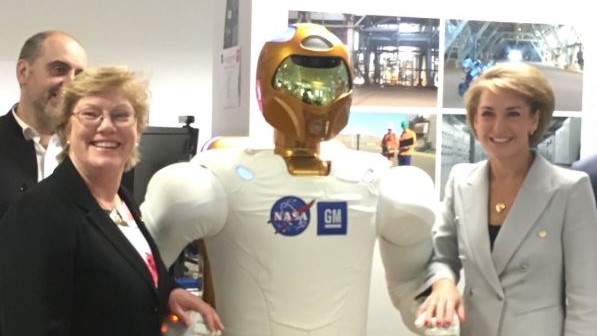Australia can now prepare for take-off, with the nation’s first dedicated space agency officially launched on Monday.
It follows last Tuesday’s budget, in which funding of $41 million over four years was allocated to the Australian Space Agency.
This will include an initial $15 million to kick-start the agency, with the additional $26 million then provided over four years.
Minster for Jobs and Innovation, Michaelia Cash said it was time for Australia to start competing in the global space industry.
“We have an extraordinary opportunity to increase our share of the growing global space economy,” she said during the official announcement, at Woodside in Perth.
“Space technologies are not just about taking people to the moon, they open up opportunities for many industries, including communications, agriculture, mining, oil and gas.
“An Australian space agency will support the long-term development of space technologies, grow our domestic space industry and secure our place in the global space economy.”
The agency, which will commence operations on 1 July this year, will be led by Dr Megan Clark for the first year.
“Its primary goal is going to be to grow the Australian space industry,” Clark told ABC News about the agency.
"You ask yourself — why are we doing that? And it's really to improve the lives of all Australians and I think to inspire Australians about what Australia can really do in the space industry."
Clark, who has previously worked as CEO of CSIRO, last year chaired a review of Australia’s space industry capability, which examined the strengths, weaknesses and future opportunities of an Australian Space Agency.
The report found that Australia has “billions of dollars’ worth of existing space-related infrastructure” and a “world-leading capability in research,” that could support the industry and a dedicated space agency.
It sets the goal for Australia to triple the size of its current space industry by 2030, making it worth around $10-12 billion annually and providing an additional 10,000 to 20,0000 high-level jobs across Australia.
In terms of funding, it is recommended the government provides ongoing support even once the Agency is operational, to invest in international partnerships, industry research and development.
The focus on international partnerships follows the Australian government signing a Space Tracking Treaty with the United States National Aeronautics and Space Administration (NASA) last year.










